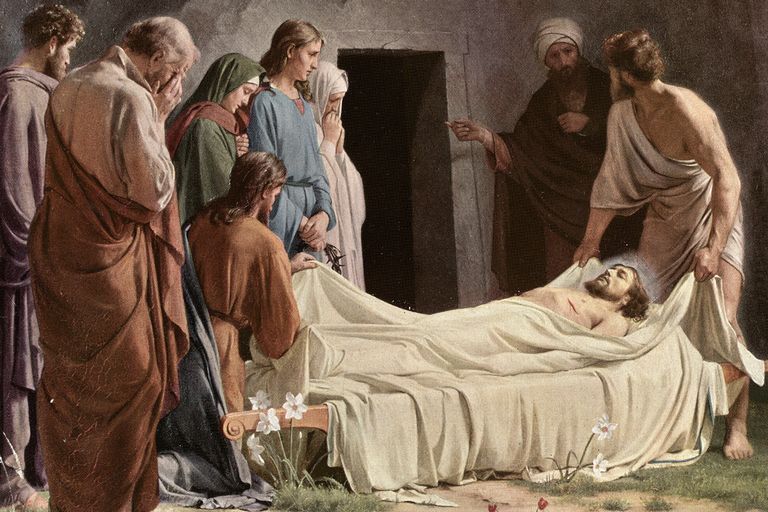Jesus’ body lay in the tomb where it was guarded by Roman soldiers throughout the day on Saturday, which was the Sabbath. When the Sabbath ended at 6 p.m., Christ’s body was ceremonially treated for burial with spices purchased by Nicodemus:
“He brought about seventy-five pounds of perfumed ointment made from myrrh and aloes. Following Jewish burial custom, they wrapped Jesus’ body with the spices in long sheets of linen cloth.” (John 19: 39-40, NLT)
Nicodemus, like Joseph of Arimathea, was a member of the Sanhedrin, the court which had condemned Jesus Christ to death. For a time, both men had lived as secret followers of Jesus, afraid to make a public profession of faith because of their prominent positions in the Jewish community.
Similarly, both were deeply affected by Christ’s death. They boldly came out of hiding, risking their reputations and their lives because they now realized Jesus was, indeed, the long-awaited Messiah. Together they cared for Jesus’ body and prepared it for burial.
While his physical body lay in the tomb, Jesus Christ paid the penalty for sin by offering the perfect, spotless sacrifice. He conquered death, both spiritually and physically, securing our eternal salvation:
“For you know that God paid a ransom to save you from the empty life you inherited from your ancestors. And the ransom he paid was not mere gold or silver. He paid for you with the precious lifeblood of Christ, the sinless, spotless Lamb of God.” (1 Peter 1:18-19, NLT)
Saturday’s events are recorded in Matthew 27:62-66, Mark 16:1, Luke 23:56, and John 19:40.



